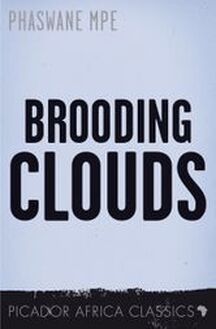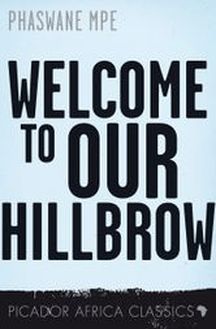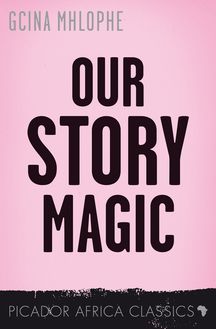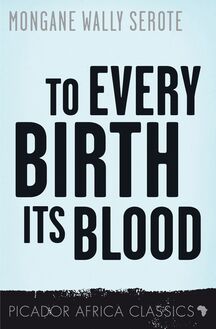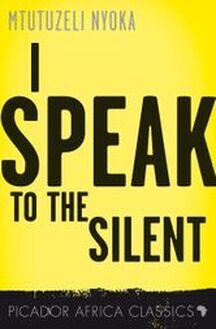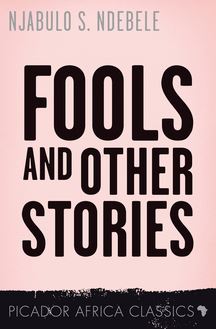-
 Univers
Univers
-
 Ebooks
Ebooks
-
 Livres audio
Livres audio
-
 Presse
Presse
-
 Podcasts
Podcasts
-
 BD
BD
-
 Documents
Documents
-
- Cours
- Révisions
- Ressources pédagogiques
- Sciences de l’éducation
- Manuels scolaires
- Langues
- Travaux de classe
- Annales de BEP
- Etudes supérieures
- Maternelle et primaire
- Fiches de lecture
- Orientation scolaire
- Méthodologie
- Corrigés de devoir
- Annales d’examens et concours
- Annales du bac
- Annales du brevet
- Rapports de stage
La lecture à portée de main
Vous pourrez modifier la taille du texte de cet ouvrage
Découvre YouScribe en t'inscrivant gratuitement
Je m'inscrisDécouvre YouScribe en t'inscrivant gratuitement
Je m'inscrisEn savoir plus
Vous pourrez modifier la taille du texte de cet ouvrage
En savoir plus

Description
Welcome To Our Hillbrow is an exhilarating and disturbing ride through the chaotic and hyper-real zone of Hillbrow - microcosm of all that is contradictory, alluring and painful in the changing South African psyche. Everything is there: the shattered dreams of youth, sexuality and its unpredictable costs, AIDS, xenophobia, suicide, the omnipotent violence that often cuts short the promise of young people, and the Africanist understanding of the life continuum that does not end with death but flows on into an ancestral realm. Infused with the rhythms of the inner city pulsebeat, this courageous novel is compelling in its honesty and its broad vision, which links Hillbrow, rural Tiragalong and Oxford. It spills out the guts of Hillbrow-living with the same energy and intimate knowledge ,with which the Drum writers wrote Sophiatown into being.
Sujets
Informations
| Publié par | Pan Macmillan South Africa |
| Date de parution | 01 juillet 2014 |
| Nombre de lectures | 1 |
| EAN13 | 9781770104051 |
| Langue | English |
Informations légales : prix de location à la page 0,0478€. Cette information est donnée uniquement à titre indicatif conformément à la législation en vigueur.
Extrait
About Picador Africa Classics
The Picador Africa Classics imprint, launched in 2014 by Pan Macmillan South Africa, aims to build a catalogue of exceptional titles that may be out of print or lack presence in digital form. It builds on the historical concept of something like the African Writers Series as well as a publisher such as Ravan Press, which showcased works of excellence by African writers.
As a leading South African publisher, Pan Macmillan’s initial focus is on classics of South African literature, both fiction and non-fiction, but we hope to expand this to writers from other countries on the African continent.
Phaswane Mpe was born on 10 September1970 in what is now Limpopo province in South Africa. He attended St Bede’sHigh School near Polokwane, matriculating in 1988, and went on to study at theUniversity of the Witwatersrand (Wits) in Johannesburg, where he completed his Master of Arts in African Literature in 1996. This was followed by a Diploma in AdvancedStudy in Publishing at Oxford Brookes University, Oxford, in 1997.
Between 1996 and 2001 Mpe lectured in African Literature and Publishing Studiesat Wits, where he was held in high esteem by students andcolleagues alike. Language and literature were his passion and heinvolved himself in every aspect of their promotion and exploration. Hepublished numerous articles in local and international journals, contributedchapters to book anthologies, and submitted articles and book reviews forseveral newspapers. He also freelanced as an editor and reader for publishers.He was generous with his support for the creativity of others, activelyencouraging the writing potential of his students and helping to set up thecampus literary journal, the Journalof the African Literature Association (JALA).
In 2001 his debut novel, Welcome to our Hillbrow was published by the then University of Natal Press, and went on to take the literary world by storm, both in South Africa and abroad.The novel received much acclaim and was shortlisted for several awards, including the Sanlam Literary Prize for Fiction (2001) and the Sunday Times Fiction Prize (2002). It was included in the Mail Guardian ’s 101 Books for Christmas (December 2001) and received a Meritorious mention in the Noma Awards (2001).
The pressure was on for Mpeto produce a follow-up masterpiece, but his immersion in academics pulled himin competing directions. He received a sought-after doctoral fellowship fromthe Wits Institute for Social and Economic Research (WISER) and initiallyplanned to do his doctoral degree on issues around child rape and HIV/AIDS. He laterchanged his area of research to sexuality in post-apartheid literature.
In November 2004, battling increasingly worseninghealth, Mpe gave up his WISER fellowship and puthis doctorate on hold in order to follow the call of his ancestors and train asa traditional healer, as his grandfather had done before him. He diedunexpectedly on 12 December 2004 at the age of 34.
Mpe’s published works include short storiesand poetry published in Imprint (1995), NewCoin (1998), EnglishAcademy Review (1999), Botsotso magazine(2001) and Unityin Flight (2001), and Brooding Clouds , a collection of short storiesand poetry first published by University of KwaZulu-Natal Press in 2008 andrepublished digitally by Picador Africa Classics in 2014.
Welcome to Our Hillbrow
Welcome to Our Hillbrow
Phaswane Mpe
PICADOR AFRICA
First published in 2001 by University of Natal Press
This ebook edition published in 2014 by Picador Africa Classics
an imprint of Pan Macmillan South Africa
Private Bag X19, Northlands Johannesburg, 2116
www.panmacmillan.co.za
e-ISBN 978-1-77010-405-1
© in the text Phaswane Mpe 2001
© in the editorial matter and final arrangement Pan Macmillan South Africa (Pty) Ltd 2014
All rights reserved. No part of this publication may be reproduced, stored in or introduced into a retrieval system, or transmitted in any form or by any means (electronic, mechanical, photocopying, recording or otherwise), without the prior written permission of the publisher. Any person who does any unauthorised act in relation to this publication may be liable to criminal prosecution and civil claims for damages.
This book is a work of fiction. Any resemblanceto actual persons, living or dead, is purely coincidental.
Original editing by Elana Bregin
Cover design of this edition by K4
‘Motho ke sera seo fela se rego ge se rakelet we se lahle marumo se hlabane ka leleme ’
A human being is a beast that when cornered throws away weapons and fights with the tongue
(O K Matsepe)
‘Reader, be assured this narrative is no fiction.’
Mmadi, tseba gore kanegelo yekhwi ga se nonwane.
(W E B du Bois)
To my friend and former teacher, Sr. Mary Anne Tobin. Mary Anne, may you grow to be as big as an elephant!
Contents
Hillbrow: The Map
Notes from Heaven
The Journey through Alexandra
Refilwe
Refilwe on the Move
The Returnee
Hillbrow: The Map
I f you were still alive, Refent e, child of Tiragalong, you would be glad that Bafana Bafana lost to France in the 1998 Soccer World Cup fiasco. Of course you supported the squad. But at least now, you would experience no hardships walking to your flat through the streets of Hillbrow – that locality of just over one square kilometre, according to official records; and according to its inhabitants, at least twice as big and teeming with countless people. You would remember the last occasion in 1995, when Bafana Bafana won against Ivory Coast and, in their jubilation, people in Hillbrow hurled bottles of all sorts from their flat balconies. A few bold souls, boasting a range of driving skills, swung and spun their cars in the streets, making U-turns and circles all over the road. You would recall the child, possibly seven years old or so, who got hit by a car. Her mid-air screams still ring in your memory. When she hit the concrete pavements of Hillbrow, her screams died with her. A young man just behind you shouted:
Kill the bastard!
But the driver was gone. The traffic cops, arriving a few minutes later, found that the season of arrest had already passed. Most people, after the momentary stunned silence of witnessing the sour fruits of soccer victory, resumed their singing. Shosholoza sounded its melodies from Wolmarans Street, at the fringe of the Johannesburg downtown, to the head of Clarendon Place, at the boundary of the serene Parktown suburb. Shosholoza drowned the choking sobs of the deceased child’s mother.
Welcome to our Hillbrow! you heard one man say to his female companion, who was a seeming newcomer to this place of bustling activity, visiting it for the first time since the conspiracy between her parents and fate decided to usher her presence onto the face of the Earth.
Welcome to our Hillbrow
Your first entry into Hillbrow, Refent e, was the culmination of many converging routes. You do not remember where the route first began. But you know all too well that the stories of migrants had a lot to do with its formation. By the time you left Tiragalong High School to come to the University of the Witwatersrand, at the dawn of 1991, you already knew that Hillbrow was a menacing monster, so threatening to its neighbours like Berea and downtown Johannesburg, that big, forward-looking companies were beginning to desert the inner city, heading for the northern suburbs such as Sandton. The lure of the monster was, however, hard to resist; Hillbrow had swallowed a number of the children of Tiragalong, who thought that the City of Gold was full of career opportunities for them.
One of the stories that you remember vividly was of a young man who died of a strange illness in 1990, when you were matriculating. The migrants said it could only have been AIDS. After all, was he not often seen roaming the whorehouses and dingy pubs of Hillbrow? While his poor parents imagined that he was working away in the city, in order to make sure that there would be a huge bag of maize meal to send back for all at the homestead. The migrants, most of whom insisted that he was a stubborn brother, who suffered because of blocking his ears with gum while they dished out advice to him, also said that he was often seen with Makwerekwere women, hanging onto his arms and dazzling him with sugar-coated kisses that were sure to destroy any man, let alone an impressionable youngster like him.
He died, poor chap; of what precisely, no one knew. But strange illnesses courted in Hillbrow, as Tiragalong knew only too well, could only translate into AIDS. This AIDS, according to popular understanding, was caused by foreign germs that travelled down from the central and western parts of Africa. More specifically, certain newspaper articles attributed the source of the virus that caused AIDS to a species called the Green Monkey, which people in some parts of West Africa were said to eat as meat, thereby contracting the virus. Migrants (who were Tiragalong’s authoritative grapevine on all important issues) deduced from such media reports that AIDS’s travel route into Johannesburg was through Makwerekwere; and Hillbrow was the sanctuary in which Makwerekwere basked.
There were others who went even further, saying that AIDS was caused by the bizarre sexual behaviour of the Hillbrowans.
How could any man have sex with another man? they demanded to know.
Those who claimed to be informed – although none could admit to having seen or practised it personally – said such sex was done anally. They also explained how it was done – dog style – to the disgust of most of the people of Tiragalong, who insisted that filth and sex should be two separate things.
Surely, this large group argued, it was the shit that the greedy and careless penises sucked out of the equally eag
-
 Univers
Univers
-
 Ebooks
Ebooks
-
 Livres audio
Livres audio
-
 Presse
Presse
-
 Podcasts
Podcasts
-
 BD
BD
-
 Documents
Documents
-
Jeunesse
-
Littérature
-
Ressources professionnelles
-
Santé et bien-être
-
Savoirs
-
Education
-
Loisirs et hobbies
-
Art, musique et cinéma
-
Actualité et débat de société
-
Jeunesse
-
Littérature
-
Ressources professionnelles
-
Santé et bien-être
-
Savoirs
-
Education
-
Loisirs et hobbies
-
Art, musique et cinéma
-
Actualité et débat de société
-
Actualités
-
Lifestyle
-
Presse jeunesse
-
Presse professionnelle
-
Pratique
-
Presse sportive
-
Presse internationale
-
Culture & Médias
-
Action et Aventures
-
Science-fiction et Fantasy
-
Société
-
Jeunesse
-
Littérature
-
Ressources professionnelles
-
Santé et bien-être
-
Savoirs
-
Education
-
Loisirs et hobbies
-
Art, musique et cinéma
-
Actualité et débat de société
- Cours
- Révisions
- Ressources pédagogiques
- Sciences de l’éducation
- Manuels scolaires
- Langues
- Travaux de classe
- Annales de BEP
- Etudes supérieures
- Maternelle et primaire
- Fiches de lecture
- Orientation scolaire
- Méthodologie
- Corrigés de devoir
- Annales d’examens et concours
- Annales du bac
- Annales du brevet
- Rapports de stage
